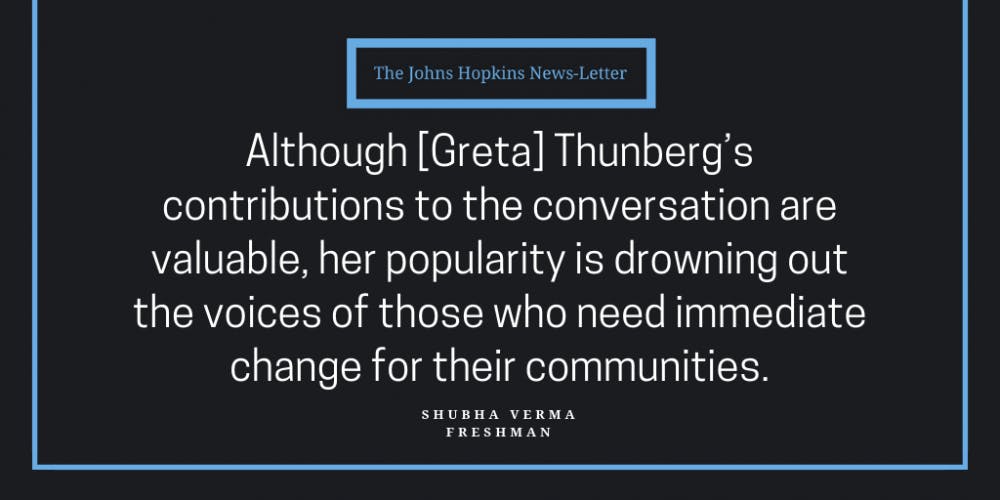Since last March, Climate Strikes have been taking place about every other month. In every state, students skip school for the day, make posters and take to the trains to meet in the heart of the city. Their motive is clear and their voices are loud. They’re powerful, and I do believe that they will make a change.
However, I wonder about the cost of this change. I’ve been tempted in the past to join the strikers, but I eventually decided that I do not want to engage in these strikes.
Leading the youth voice is Greta Thunberg, a teenager from Sweden who began the trend of skipping class to protest in August 2018. She took to the government because she wanted the Swedish parliament to take stronger action in fighting climate change. People began to notice her actions and mimicked them in their own cities. News spread of her heroic actions, and soon hundreds of thousands of students began joining her.
When Greta Thunberg came to prominence, thousands of other young voices were drowned out. Greta truly has made amazing contributions to the movement, but she’s also taken the attention from many other youth activists who have been counteracting climate change for years.
Autumn Peltier, a young indigenous woman, has been fighting for climate change awareness for the past six years. Her reservation on Manitoulin Island in Ontario faced issues when their water became toxic.
Since then, she has made the fight against climate change one of her top priorities. Another young activist is Mari Copeny, also known as “Little Miss Flint.” She wrote to President Barack Obama in 2016 about the Flint Water Crisis, which brought it national attention.
Although Thunberg’s contributions to the conversation are valuable, her popularity is drowning out the voices of those who need immediate change for their communities.
Another issue with the climate strikes is that they are not practical for most students. Skipping class is an ultimate privilege. Sacrificing education is something that students across the country have been doing to attend these strikes. It seems like the protesters’ mindset is that if the government does not provide a fix for climate change within the next couple of years, students will not even grow old enough for their education to matter.
But I believe that education always matters. There’s no reason for strikes like these to happen on school days. My high school classes felt empty on the days of the strike, and my school was pushed to provide no punishment for students taking the day off. The purpose behind the strike was lost in the excused absences and makeup test dates which they received. Their statement was reduced to a day spent in the city rather than in the classroom.
In addition, the spotlight falling on climate change is very disproportionate across communities. Affluent communities are the ones that need direct climate change policy the least.
Although every community does need climate change policies, poorer communities are more likely to face issues associated with climate change. Not everyone can afford bottled water if their water is toxic. Some communities do not have the resources to improve the air quality.
The climate strikes do not focus on this disparity. They overshadow voices which need to be heard the most. The people who need climate change to stop immediately are the ones who are facing the direct consequences of it now. These are the people we should be fighting for.
It seems as though the focus of the youth Climate Strike bases itself around one large idea: if we don’t correct climate change, we have no reason to attend school. However, there are people who won’t be alive in the next few years if we don’t correct climate change immediately. Issues like access to clean water and air pollution are among the problems that need solutions now. They’re already causing a high mortality rate. Things that we fear in the future are already a reality for some.
Luckily, there are other ways to support the movement for improved climate change policy. Depending on what your goal is, you can write to your representative to push them to pass climate change bills. You can become vegetarian or vegan to reduce meat consumption and methane production. You can support local businesses rather than fast-growing chains. Anything you do to counter-act or protest climate change will make a difference. You do not have to strike.
But if you do choose to strike, make sure you speak for those who cannot.
Shubha Verma is a freshman from Forysth, Illinois. She’s intending to study Neuroscience.





